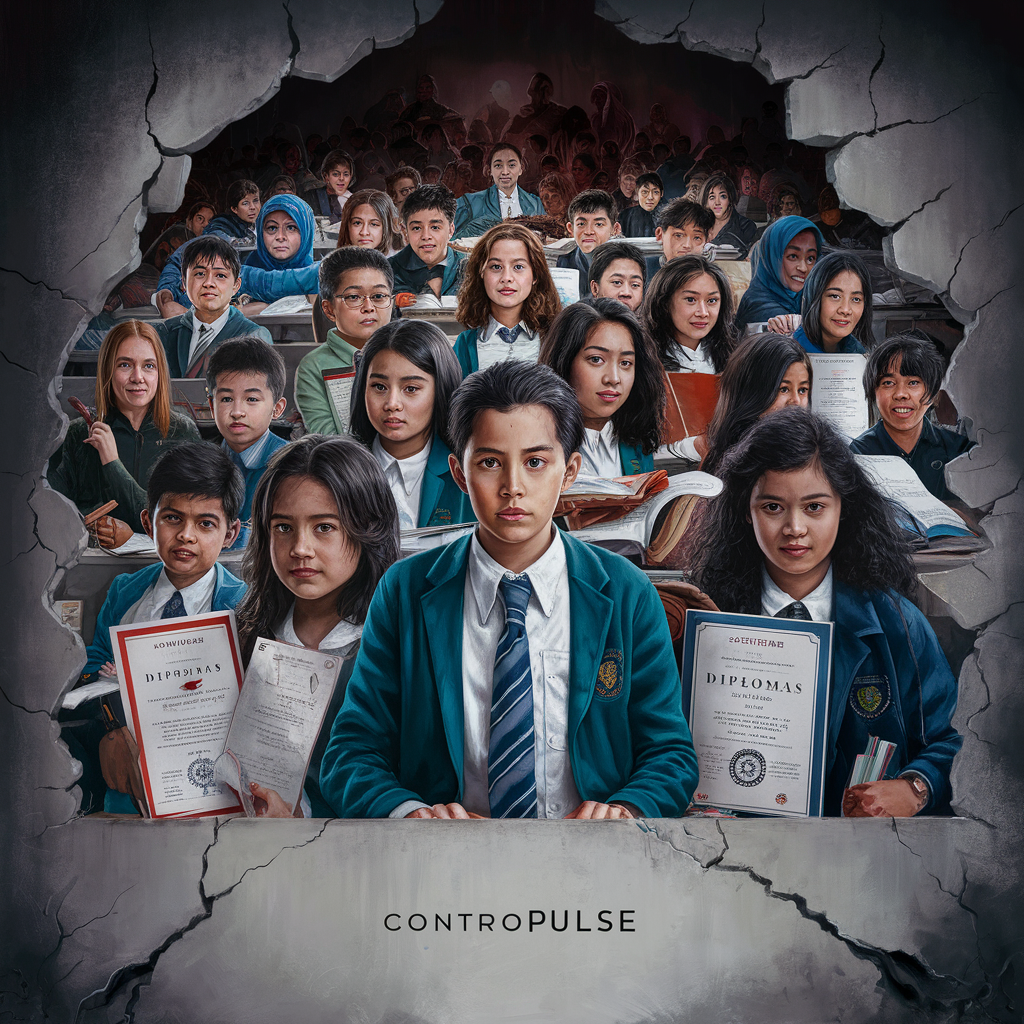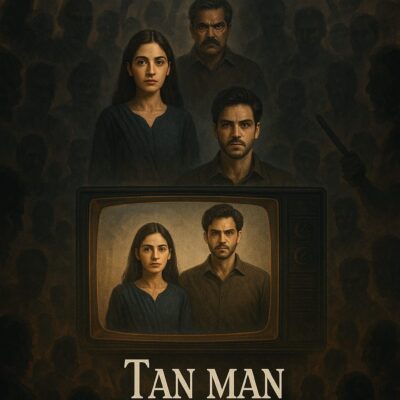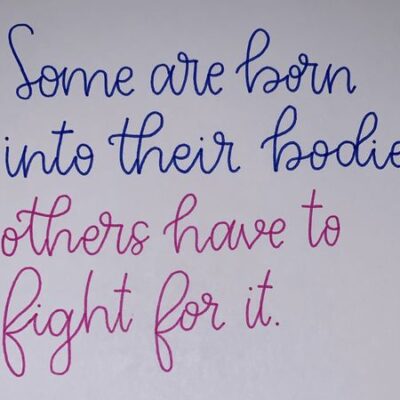Private schools promise high grades, but what if those numbers hide a lack of real skills? Discover the truth behind the illusion of private school excellence.

The Private School Illusion
When we become parents or take on the responsibilities of elder siblings, we always try our best to put our younger siblings or children into the best schools for a bright future. We believe private schools are the key to making them confident and skillful. We hope they achieve what we could not, like speaking English fluently, often seen as a mark of good education. In middle-class families, learning English is a big goal since it’s considered more than just a language- it’s a way to succeed. Because we could not get that level of education due to limited resources, we want our children to have those opportunities. that’s why, even if we are from the middle class, we do everything we can to send them to private schools.
But the important question is, who guarantees a bright future just by studying in private schools? Every school promises a great future, but why are so many people still unemployed? It’s like the empty promises politicians make. Private schools understand our weaknesses and manipulate us with promises of excellent English courses and perfect scores. But have we ever taught about how every child can get 100 out of 100 or A+? No, because we only care about our children getting A grades. The truth is, every child has a different mindset. In a class of 30 students, not all can be the best in every subject. there is diversity and every student has different interests and strengths. Some may be good in English, others in math, or other subjects. Everyone can’t excel in all subjects. This perfect image private schools maintain is a fantasy.
I attended both private and government schools until 8th grade and then switched permanently to a government school. From my experience, there is a big gap between private and government schools. People might consider private schools the best, but my experience was quite different. The first difference I noticed was the level of education. Government teachers often do not pay much attention to how they speak, while private school teachers might speak fancy English, but it’s mostly for show. To get hired at private schools, you mainly need to have good English speaking skills, even if you don’t know basic grammar. This is not true for all private schools, some are good, but I am talking about the majority.
In many neighborhoods, there are two or three private schools that someone may have set up in their homes. Parents send their children to these schools because they are convenient. The situation in these private schools is often poor. On one side of the room, there might be a few plastic chairs for students, and on the other side, there might be teachers doing housework. All the students from different grades are put in one room because there is not enough space. These are the lowest level of private schools, where parents send their children just so they can pass, and education is not a priority for them.
Then there are slightly better private schools with multiple classrooms and necessities, These schools are better than the first type, but the fees are high. They invest a lot in advertising, putting up posters, and promoting themselves. Reputation is very important to them, so they hire teachers who are good at speaking English. However, they focus more on giving students good grades rather than developing skills or practical knowledge. Then there are the elite private schools. These schools offer all the luxuries along with the necessities and charge fees even in lakhs. In these schools, teachers are not respected because they are expected to keep students happy by giving high marks and cutting fewer marks. These schools focus more on extracurricular activities than on academics.
All private schools seem to have a mindset where they see students as a way to make money, treating them as a product of capitalism with dreams centered around wealth. These students can easily experience brain drain because they grow up in an environment where money is everything. Schools like Beacon Light, Global Schools, and even smaller private schools in neighborhoods all have the same goal: to get more money from parents. Every year these schools have numerous celebration days where they ask for more money from parents. These include Color Day, Party Day, Sports Day, and many more, in addition to the annual fee, monthly fee, and admission fee. They might also have Science Fairs, Cultural Festivals, Talen Shows, and Fund Raising Events, all of which require parents to contribute extra money.
Most of the time, private schools are run by capitalists who see education as a business. They do not care if the school is providing quality education or not. When all the students get A+ grades, it kills their creativity because there remains no real competition. During the announcement of results, about six or seven students might get first, second, and third places. Their parents are thrilled to see their children win trophies, but this focus on prices and positions also kills creativity. Parents are part of the problem too. They prioritize marks and positions over quality education. Mothers want their children to speak fluent English so they can proudly show off to relatives, saying things like, “Look at my son, he knows all the English poems and speaks English so well“.
In the hands of capitalists, education becomes a business, stripping away its true purpose. Private schools, driven by profit, prioritize high grades and appearances over genuine learning and creativity, turning students into products of capitalism.
Education vs Reality
In developing countries like Pakistan, parents often invest their savings into their children’s education, especially their sons, hoping they will secure good jobs and support them in old age. They send their children to private schools and colleges for better opportunities. However, the low quality of education in these schools creates narrow mindsets. When these students enter the Professional world, they expect top jobs immediately without going through the necessary hardships. They struggle to accept entry-level positions crucial for gaining experience and often find it hard to settle for less. It is because the schools and colleges did not tell them the actual reality of the world and hardships, nor train them for the challenges. They just created a fantasy world by telling both students and parents that once they study in their institutes, they will get the best jobs, and things will run smoothly.
When students face the real world, they often find it hard to handle. many feel discouraged, look for opportunities to work abroad, or even think about suicide. So, students might face significant challenges in the job market which may include:
- lack of practical skills
- Unrealistic expectations
- Limited experience
- Economic pressure
- Misalignment with job requirements
- High stress and mental health issues
Schools should aim to give students practical skills for real jobs, so they can start their own small business if they can’t find a job. Capitalism influences both schools and the job market. Even high-paying jobs often only cover basic expenses and require long hours, making it hard for people to meet their needs and maintain a good work-life balance.
In private schools, there is often a lack of proper oversight. From my personal experience as a tutor, I have seen students cheat during exams by using micro of their notes. Teachers are aware of this but do not take action. They do this either to protect the school’s reputation or to ensure students pass, as they might be held responsible if too many students fail. Teachers in private schools often face a lack of respect. If they ever complain about students’ misbehavior they might be told to stay quiet and reminded that their job is to serve the students. This makes it difficult for teachers to maintain discipline and enforce rules.
When I was in matric, one of our biology teachers punished a boy by making him stand for half an hour because he had not done his homework for four days. The next day, after school ended, four male relatives of that boy came with sticks to beat the female teacher. The security guard quickly closed the gate to prevent them from entering. It took a long time for the principal to calm them down, and in the end, the teacher had to apologize to resolve the issue. This shows how teachers in private schools are treated poorly, almost like objects, without the respect they deserve. In many private schools, teachers do not get enough support from the school administration. This lack of support makes it hard for teachers to manage their classrooms and handle disciplinary issues effectively. When teachers face problems like disrespect or threats from students and their families, the school administration often does not step in to help. For example, if a teacher disciplines a student and the student’s family reacts aggressively, the administration might not defend the teacher. This leaves the teacher feeling vulnerable and unsupported. At the Smart School Model Colony, a student got injured, and instead of giving him first aid, the school wasted time by calling his parents. This indicates the negligence of the school administration. “The boy’s parents also question how glass could have hit their son and caused such severe injuries that he ultimately died while receiving treatment”(https://classroompk.com/institutions/schools/boy-passes-away-in-private-karachi-school/).
One of the biggest problems with sending children to private schools is the emotional stress and feelings of inferiority they might face. Teachers often ask students about unpaid fees in front of the whole class instead of talking to the parents, which can make the children feel ashamed. In many schools, teachers question their unpaid fees and tell them to bring the money the next day. If they don’t, they might be punished by being made to stand all day, sent out of the class, or not helped with difficult topics. These students are treated differently, which can lead to bullying by other students. “The students are kept in various sorts of isolation, made to stand for hours, expelled from the class, made to sit on the floor, awarded corporal punishment, and treated harshly in general while their parents are also insulted and threatened with the expulsion of their kids from the school, which are inhumane acts that cannot be accepted in any case”(https://www.dawn.com/news/1713491). When middle-class and upper-class students are in the same class, there can be a noticeable class difference. Some students show off their expensive school supplies and other items, while others struggle to pay their fees on time. Teachers also give more attention to students from wealthier families.
Conclusion
Private schools are often viewed as the best part of success, especially for middle-class families. However, these schools can cause significant emotional stress for students. Teachers sometimes ask students about unpaid fees in front of the class, leading to embarrassment and bullying. There is also a noticeable class divide, with wealthier students showing off their expensive belongings while others struggle to pay their fees. Private schools focus more on profit and appearance than on providing quality education. This results in students having unrealistic expectations and being unprepared for real-world challenges. This lack of support for teachers and the poor handling of student issues further highlight problems in the private school system. Additionally, there are serious concerns about the treatment of students, highlighted by an incident in Korangi, Karachi, where the registration of a private school was suspended after a female teacher was found guilty of brutally beating a 7th-grade student. this incident indicates a lack of proper oversight and support within the private school system. Parents should carefully consider whether private schools truly offer the benefits they promise. it’s important to look beyond the surface and understand if these schools genuinely support their children’s education and well-being.
References
https://www.dawn.com/news/1713491
https://www.geo.tv/latest/468549-karachi-schools-registration-suspended-over-corporal-punishment




